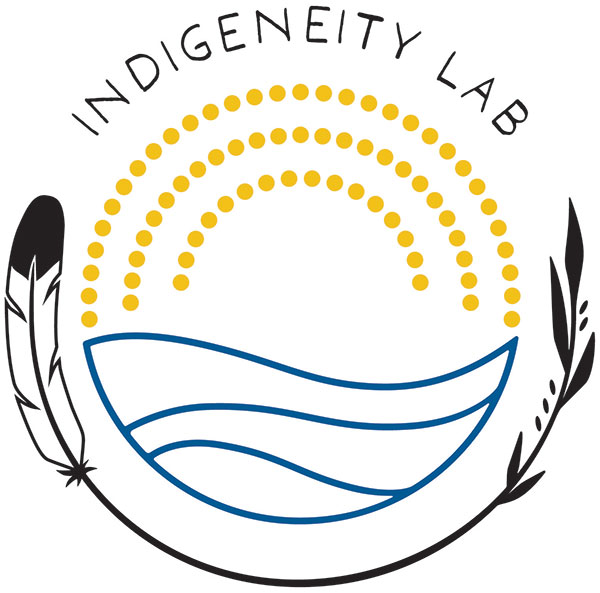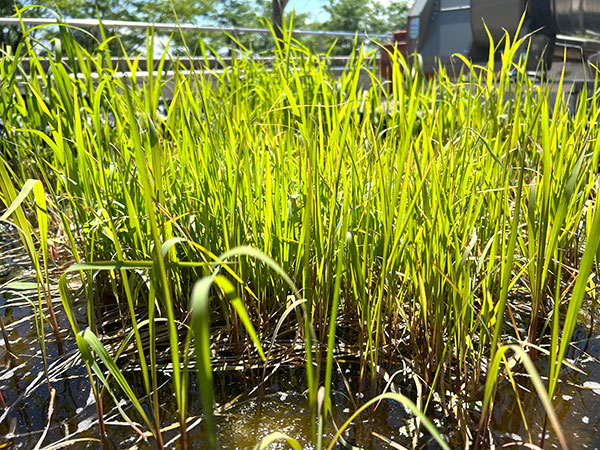
About the Indigeneity Lab
The Indigeneity Lab, funded by the Joerres Family Fund for Experiential Learning, was founded in the spring of 2021 as a new opportunity for undergraduates to robustly collaborate with both Native and non-Native faculty on several interrelated cross- disciplinary research projects in the sciences and humanities focused on Indigenous topics.
The first project combines historical research and digital humanities tools to create an interactive virtual map of the greater Milwaukee area that will return and transform the many spaces and places of Milwaukee into an Indigenous space and place. This map takes present-day locations to illustrate their Indigenous roots, as well as their continued shaping by Milwaukee’s Indigenous community today. While in the formative stages, the students, with their faculty mentor, have identified 136 spaces and places in Milwaukee to be “Indigenized” and in multifaceted, multi-medium ways. The effort foregrounds the knowledge that even before it was named, the city of Milwaukee has been and continues to be home to a vibrant community of Indigenous Peoples from throughout North America. Please visit the Indigeneity site to learn more.
The intention of the second project, Native American Boarding Schools in Context, is to bring awareness and context to the extensive Bureau of Catholic Indians Missions records in Marquette Library's special collections. The hope is that the website Indigeneity Lab website will inform and create an entry point for the Marquette University community as well as Indigenous communities and outside scholars. The student research is illuminating the rather obscure and rarely used archives related to Catholic boarding schools and is setting the foundation for a digital site that will explore those schools and Indigenous student experiences. This project speaks to the various ways in which Marquette University continues to reckon with its own historical relationship with Indigenous peoples and knowledge production of shared Catholic and Indigenous relationships and histories.
 The third project intertwined and involves the revitalization (and hopeful reintroduction) of wild rice in the Menomonee River Valley in the heart of Milwaukee. Several undergraduate students are working to determine the viability and sustainability of this biological study, while others developed a more rooted understanding of the cultural, historical, political, and spiritual importance of wild rice to Wisconsin tribal nations. This initiative requires a unique holistic approach and innovative interdisciplinarity between arts, culture, and sciences.
The third project intertwined and involves the revitalization (and hopeful reintroduction) of wild rice in the Menomonee River Valley in the heart of Milwaukee. Several undergraduate students are working to determine the viability and sustainability of this biological study, while others developed a more rooted understanding of the cultural, historical, political, and spiritual importance of wild rice to Wisconsin tribal nations. This initiative requires a unique holistic approach and innovative interdisciplinarity between arts, culture, and sciences.
Mission/Guiding Values
The Indigeneity lab so naturally weaves in and throughout the mission of Marquette. It affirms our commitment to build and support a more diverse university community that will help us to achieve excellence by promoting a culture of learning, appreciation and understanding. In this case...cross-cultural understanding. The lab builds connections not just between faculty and underrepresented students, but connects them both to the Indigenous community in what we know will be diverse ways.
Land and Water Acknowledgment
Marquette University acknowledges that our campus and Milwaukee are the homelands and waters of the Menominee, Potawatomi, Ho-Chunk, Fox, Mascouten, Sauk and Ojibwe nations, who have known this land and water as a relative for millennia and who remain our hosts on the land today. We also acknowledge that Milwaukee is located along the southwest shores of Michigami (meaning “big water” in Anishinaabemowin), where the Milwaukee River, Menomonee River, and Kinnickinnic River meet. We remember that Milwaukee is covered by the 1833 Treaty of Chicago signed by the United States and Potawatomi and acknowledge it cleaved and dispersed this tribal nation through removal.
We also acknowledge the presence of tribal members from Wisconsin sovereign nations in Milwaukee, including the Oneida Nation, Stockbridge-Munsee Community Band of Mohicans, Brothertown Nation and Ojibwe Nations – namely, the Red Cliff Band of Lake Superior Chippewa, Lac Courte Oreilles Band of Lake Superior Chippewa, Lac du Flambeau Band of Lake Superior Chippewa, Bad River Band of Lake Superior Chippewa, Sokaogan Chippewa Community and St. Croix Chippewa Indians. We further understand and honor that the greater Milwaukee area is home to a large, resurging urban Indian community that includes diasporic Indigenous peoples from around North America, as well as from the Global South, the Pacific, Asia, Africa and the Middle East.
Marquette University further acknowledges and pays respect to the elders and ancestors past, present and emerging whose histories, knowledge and cultural traditions have shaped the land and water of the greater Milwaukee area and can enrich practices around its stewardship. We affirm our commitment to practice ongoing good relations with the land and water and with sovereign Indigenous Nations that caretake them. In acknowledging the long-held relationships fostered by these lands and waters, we seek to strengthen and recommit ourselves to ongoing and future kinship responsibilities with each other and the Earth. In the spirit of reconciliation, we can authentically attend to and create the conditions of hospitality for current Indigenous students and community members and all yet to walk with us.
Click here for more information about this statement.


 The third project intertwined and involves the revitalization (and hopeful reintroduction) of wild rice in the Menomonee River Valley in the heart of Milwaukee. Several undergraduate students are working to determine the viability and sustainability of this biological study, while others developed a more rooted understanding of the cultural, historical, political, and spiritual importance of wild rice to Wisconsin tribal nations. This initiative requires a unique holistic approach and innovative interdisciplinarity between arts, culture, and sciences.
The third project intertwined and involves the revitalization (and hopeful reintroduction) of wild rice in the Menomonee River Valley in the heart of Milwaukee. Several undergraduate students are working to determine the viability and sustainability of this biological study, while others developed a more rooted understanding of the cultural, historical, political, and spiritual importance of wild rice to Wisconsin tribal nations. This initiative requires a unique holistic approach and innovative interdisciplinarity between arts, culture, and sciences.